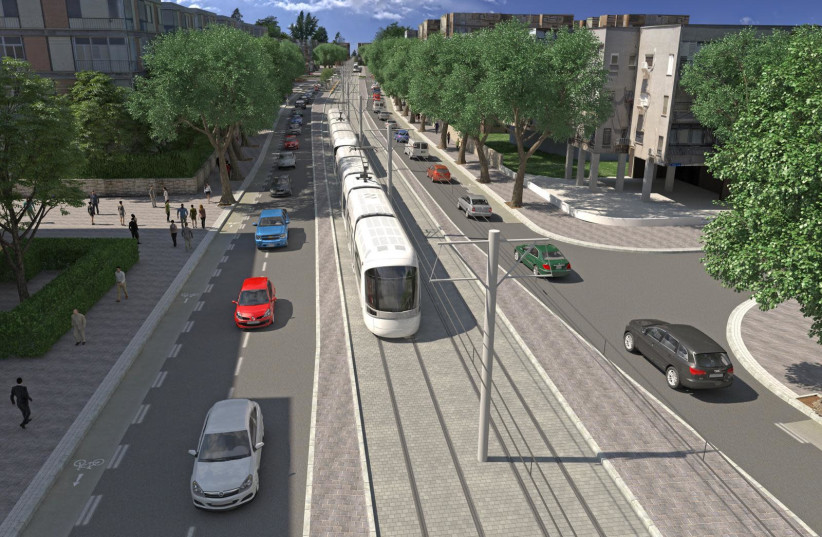The simple truth must be told – sadly, as with almost every major issue in Israel – decision makers have been unfathomably tardy in tackling the question of the light rail system and its operation (or lack of) on Shabbat and holidays.
It seems as though the investment of 42 billion shekels in one of the largest infrastructure projects ever undertaken here is simply some trivial matter that does not call for full operation of the railway throughout the week, and not only 80% of the time. Apparently, those who filled the post of transportation minister in recent years did not see fit to launch any kind of investigation into the matter or even conduct a preliminary inquiry at the very least.
Even Transportation Minister Merav Michaeli’s very belated awakening, more than a year since she took office, cannot conceal the fact that, for political reasons, anyone who has had any hand in this project in the last few years has mishandled it egregiously.
In the name of an antiquated status quo that no longer exists, and despite huge public support (more than 70% in all recent polls), the country’s leaders, almost casually, chose not only to prevent operation of the light rail at weekends but also took no steps to examine its economic ramifications.
At the request of Israel organization Hofsheet, such an investigation was carried out under the leadership of Chen Herzog, chief economist of BDO Consulting, and its findings were recently published. It presents a worrying picture – failure to operate the light rail on weekends will cost the Israeli economy close to a billion shekels annually even before taking into account the expected reduction in air pollution, road accidents and narrowing the gap between those who can afford to buy their own vehicle and those who cannot. The economic damage alone should serve as a flashing warning sign for anyone who has the best interests of the country at heart.

No logical reason not to run the light rail on Shabbat
Beyond all these considerations and after stating the obvious – that the light rail need not operate in Bnei Brak on Shabbat – there exists no logical reason why it should not to do so in all other central cities. The public is in favor; the money has already been invested; traffic jams asphyxiate the entire country; and the public cannot fully rely on public transport when it is deactivated every week from Friday afternoon until the late hours of Saturday evening.
After all this bungling, the bottom line is startlingly simple – failure to run the light rail on Shabbat is an act of sabotage against the Israeli public. The public supports the move; all existing economic data indicate that this is the right course of action.
Transportation projects on Shabbat that have been implemented by local municipalities in recent years reflect a high and constantly growing demand. Any further decision that impedes the immediate operation of the light rail over weekends can only be interpreted as political cowardice, a lack of vision and a complete disconnect with the Israeli public.
This decision must not be delayed one moment longer. The light rail needs to operate over weekends and holidays from day one.
The writer is the executive director of Israel Hofsheet, an advocacy organization promoting liberal policies on issues of religion and state, with a focus on both national and municipal policies.
